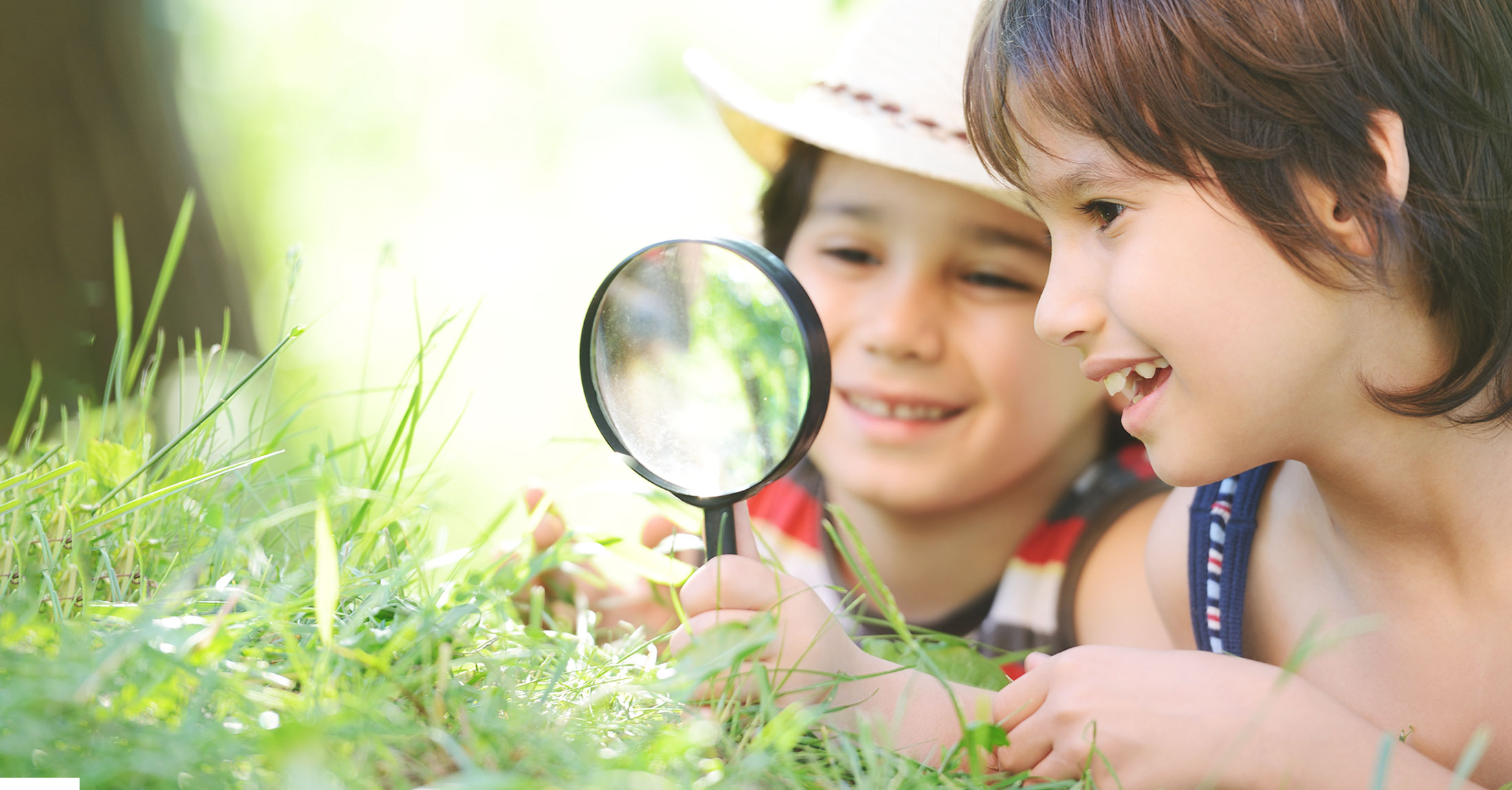Learning is like an adventure
There are many ways young children can be encouraged to explore. As they make discoveries, expand their interests, and develop new ones, they gain experience and learn—cognitively, physically, socially, and more.
A child’s world is FULL of possibilities, some familiar, others unconventional, surprising, virtual, or imaginative. Prospects for exploration are endless.
“Exploration is really the essence of the human spirit.”
~ Frank Borman (Commander of Apollo 8, the first mission that orbited the moon, Dec. 1968)
In addition to helping children learn, early explorations of all kinds can support the joy of learning, and understanding of the relevance of learning —including at school, where they will continue to make discoveries over the course of many years.
For now, however, here are four different exploratory options for parents to think about, followed by strategies for supporting young children’s activities.
1.) Explorations Through Nature
“Interaction with natural surroundings can promote greater appreciation of green spaces, wildlife, parklands, forests, flowers, and conservation efforts—and can be soothing and invigorating, too.”
~ From Is Experience the Key to Learning and Creative Expression?
Sensory-rich explorations and time spent outdoors afford children opportunities to hear, feel, smell, touch, and taste—and to appreciate nature. Poet e.e. cummings wrote, “The world is mud-luscious and puddle-wonderful.” I agree! I write elsewhere that “Connectivity with the natural world also leads to greater sensitivity, caring, and awareness. Becoming immersed in natural surroundings can help children feel relaxed, express themselves, and feel validated in their emotions.” (For more on this, see The Nature of Creativity: Calling All Children.) Family nature walks and exploratory hikes to study brooks, rock formations, tracks in the snow, birds in trees, flowering meadows, and other wonders, can enhance mindfulness (being in the moment), fuel curiosity (see Curiosity in Children and Why It Matters), and help reduce stress.
2) Explorations Through Face-to-Face Encounters
“Last fall, a lady from the Humane Society came to my class and described how they look after the animals. I’ve been volunteering twice a month ever since. I want to become a veterinarian.”
~ Being Smart about Gifted Learning, p. 158
Luke is six years old, and his experience at the animal shelter reflects how real-life encounters can make a difference in a child’s learning trajectory. He helps put out clean water and food, reads his animal picture books to the dogs and cats, and organizes the toys. He’s helping, and learning, too.
Nine-year-old Jasmine recalls being in kindergarten for her first “Career Day.” Although kindergarten might seem early to introduce children to career options, it was impactful for Jasmine. “A forensic diver described his underwater diving job. It was awesome!” She and other primary schoolers started swim classes, and have been enjoying water activities ever since.








